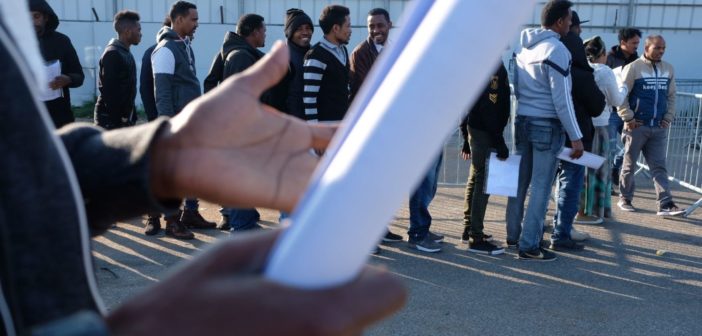The deportation of African asylum seekers in Isreal is itching nearer as the Jewish state begins the issuance of deportation notices on Sunday.
In the first stage, the notices will be issued to men without children who come to renew their residence visa. Citizens of Eritrea and Sudan are required to renew their visas every two months at the authority’s office in Bnei Brak. They will receive their last two-month visa, along with a letter stating that during this period they are expected to leave the country, otherwise they will be forbidden to work and can expect to be incarcerated indefinitely. Authority personnel will suggest that they leave for either Rwanda or their native countries.
Dabsai, a 47-year-old from Eritrea is a resident of Netanya. “I don’t want to go to Rwanda,” he said. “I’m from Eritrea, and I don’t want to return to Eritrea. I’m going to jail, without fear.”
Habtum, an asylum seeker from Eritrea who spent over a year in the Holot detention facility, said “They told me to leave after 60 days. I told them that I cannot, there’s a problem because I came here.” He says he’d rather enter prison.
According to population authority figures, there are some 39,000 Eritreans and Sudanese in Israel, including 5,000 children. For now, deportation notices will not be issued to women, children, fathers of children, anyone recognized as a victim of slavery or human trafficking, and those who had requested asylum by the end of 2017 but haven’t gotten a response.
This brings down the number of those subject to deportation, for the time being, to between 15,000 and 20,000 people. But Interior Minister Arye Dery and other officials have made it clear that the decision not to deport parents, women or children will likely change down the road. Those seeking asylum now are not assured protection either.




